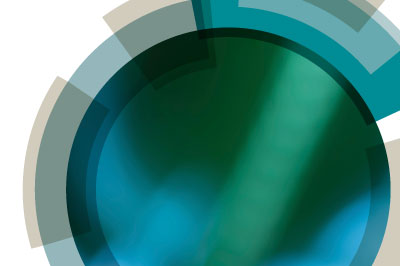The field of soft matter has emerged as a coherent subject within the last ten years, and is of increasing relevance to interdisciplinary research at the interface of physical chemistry, physics, materials science and biology.
Soft matter by definition includes many types of biological materials, but it is only recently that several exciting new directions have been pursued in this area. Examples include developments in understanding myloid fibrillization, liposome and polymersome self-assembly, DNA superstructure formation, biopolymer hydrogel self-assembly and how to control this to develop tissue scaffolds, and the control of biopolymer self-assemblies forapplications in biomedicine.
There are many deep questions associated with these ideas concerning the extent to which physical chemistry principles can be applied to complex biological systems, for example is the amyloid state the thermodynamic ground state of proteins? How useful is the approximation of a globular protein as a hard sphere? To what extent can the self-assembly of biopolymers be understood using models for synthetic polymers, or in contrast to what degree to specific interactions (electrostatic, hydrophobic etc) need to be considered?
This meeting follows on appropriately from previous Discussions on multiscale simulation of soft matter systems (FD144) and the Importance of polymer science for biological systems (FD139). In contrast to earlier meetings this Faraday Discussion will concern the physical chemistry of novel self-assembling bio-conjugate or bio-hybrid materials. It will focus on the self-assembly of novel bio-hybrid materials, especially conjugates of proteins with polymers, glycosylation of proteins, polymer/virus hybrids etc. Much work in this field has been driven by recent advances in synthetic methodology which has enabled exciting work on the production of self-assembling and self-organizing systems. These systems are under intense research for applications in tissue scaffolding, drug delivery systems. An understanding of the physical chemistry of self-assembly is essential for such applications.
The Scientific Committee look forward to welcoming you to Bristol for this Faraday Discussion
Soft matter by definition includes many types of biological materials, but it is only recently that several exciting new directions have been pursued in this area. Examples include developments in understanding myloid fibrillization, liposome and polymersome self-assembly, DNA superstructure formation, biopolymer hydrogel self-assembly and how to control this to develop tissue scaffolds, and the control of biopolymer self-assemblies forapplications in biomedicine.
There are many deep questions associated with these ideas concerning the extent to which physical chemistry principles can be applied to complex biological systems, for example is the amyloid state the thermodynamic ground state of proteins? How useful is the approximation of a globular protein as a hard sphere? To what extent can the self-assembly of biopolymers be understood using models for synthetic polymers, or in contrast to what degree to specific interactions (electrostatic, hydrophobic etc) need to be considered?
This meeting follows on appropriately from previous Discussions on multiscale simulation of soft matter systems (FD144) and the Importance of polymer science for biological systems (FD139). In contrast to earlier meetings this Faraday Discussion will concern the physical chemistry of novel self-assembling bio-conjugate or bio-hybrid materials. It will focus on the self-assembly of novel bio-hybrid materials, especially conjugates of proteins with polymers, glycosylation of proteins, polymer/virus hybrids etc. Much work in this field has been driven by recent advances in synthetic methodology which has enabled exciting work on the production of self-assembling and self-organizing systems. These systems are under intense research for applications in tissue scaffolding, drug delivery systems. An understanding of the physical chemistry of self-assembly is essential for such applications.
The Scientific Committee look forward to welcoming you to Bristol for this Faraday Discussion
Aims
The meeting will represent a high profile forum for this exciting new field and will foster discussion among the many international research groups working in this diverse field.Themes
- Self-assembly of polymer/protein conjugates or polymer/virus conjugates
- DNA condensation using polyelectrolytes
- Self-assembly of lipids and polymersomes
- Self-assembly of carbohydrate/glyco polymer hybrid materials









